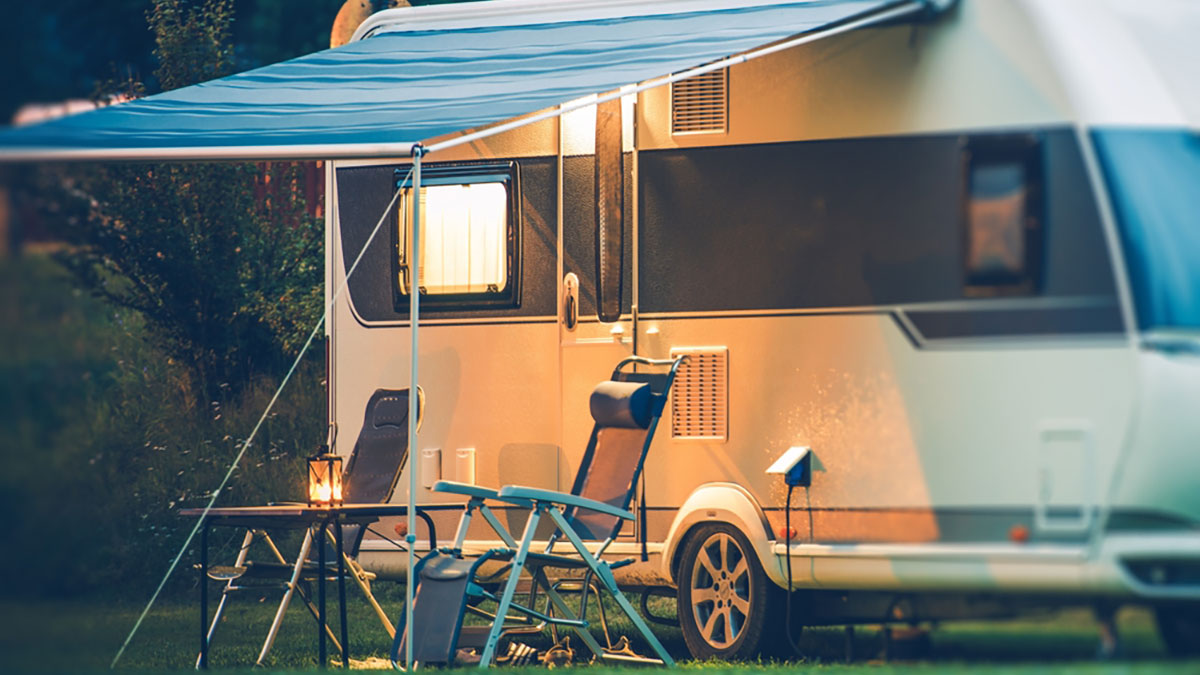
A Guide for Full-Time RV Living

Transitioning from a home where you have roots in one place to a full-time life on the road is a drastic change, but there are many things that draw people to this “nomad” lifestyle. It could be the flexibility, the love of traveling, or maybe you just want to get out of your comfort zone and try something new! Whatever the reason may be, if you’re preparing to be an RV full-timer, kudos for having the courage to embrace this exciting lifestyle change.
We know it can be overwhelming to think about the details involved with living full-time in an RV, and your choice to welcome the open road may seem impulsive to others, but that’s okay. Life is short, and who knows … you may end up regretting not doing this sooner!
Here are some tips to help you prepare for living in an RV full-time.
Become a Minimalist.
Adapting a minimalist lifestyle often requires major changes. You’re probably going from a normal-sized home to a roughly 270 square foot space, which forces you to ask: “What do I really need?” To determine this, start by writing down everything you want to bring, then write another list of everything you actually need. This will help you visualize and prioritize your possessions.
Bring all the necessities, of course – clothes, toiletries, shoes, cookware, etc. However, you won’t need 10 pairs of boots, or the many t-shirts that have been sitting in your drawers for 2+ years, or 20 drinking glasses that you currently have in your kitchen.
You may need to make some tough decisions, but take this opportunity to de-clutter your belongings. Make a “take” pile and a “donation” pile. It’s always a good idea, even if you aren’t planning to RV full-time!
Go Paperless.
Life on the road means you won’t be home to pick up your mail and see if you received any bills. Move all of your bills (cell phone, medical, credit cards, auto insurance, etc.) to automated billing so you don’t need to worry about it. Once you make the switch, you should get all notifications for your bills via email moving forward. Plus, this helps save the environment!
Sell or Keep Your Home?
This brings us to our next question – will you make the commitment to sell your home and have your RV be your only residence? This depends on how much you plan to travel throughout the year. Also, can you afford to keep your home while traveling? You will still have your mortgage payments, maintenance on the home and other obligations. If you decide to keep your home, there’s always the option of renting it out so you won’t have to worry about any mortgage payments. If you don’t start renting, make sure you have someone regularly stopping by your home to get the mail and take care of any maintenance needed as the seasons go by.
If you do decide to sell your home or cancel a lease, you will need to choose a domicile state and receive mail. Getting a domicile means you are choosing a state for your legal residence. This state will be listed on your driver’s license, where you purchase your health insurance, where you can vote and where you will accept mail. (There are lots of mail-forwarding services that will set you up with a street address so you can officially establish residency. This is helpful because a P.O. Box address will not be accepted as your legal residence). The best states for full-time RVer domiciles are Texas, Florida or South Dakota.* People usually choose these states because they are income tax-free!
Selling your home will also allow more financial freedom for your RV travels! Get that estate sale ready, or find a storage unit to put all of your furniture in, just in case you ever want a break from the RV life.
Determine a Monthly Budget.
You may think you’ll be saving a lot of money when you live on the road – but you will be surprised. Since your expenses will be drastically different from when you lived in a home, you need to budget and keep track of everything you spend. Things like campsite fees, eating out frequently, gas and unexpected RV repairs can add up. Once you get a good idea of how much you’re spending each month, you can adjust your budget accordingly.
Purchase Full-Time RV Insurance.
Since your RV will be your permanent residence, you need a specific type of insurance coverage called “Full-Time RV Insurance.” You will be covered against liabilities, Additional Living Expenses, medical expenses in the case of an accident and more! Find a Foremost agent near you to get more information on how you can get covered, so you can enjoy your travels across the U.S.
Stay Connected with Family and Friends.
Communicate with your friends and family on a regular basis. (They will miss you!) It’s also a good idea to let a few people know your current location and where you’re headed next on a regular basis, just in case of an emergency. To make your loved ones feel like they’re part of your adventure, post pictures frequently on social media or send them via text or email. It will let everyone know you and your companions are safe, and also allows you to stay connected with everyone even when you’re not physically with them.
Enjoy Every Minute.
Living life on the road is a once-in-a-lifetime experience. You will see amazing things, meet one-of-a-kind people and make the best memories. Don’t take it for granted! With traveling, you will always run into some bumps in the road – but that’s part of the journey. Don’t let it discourage your long-term goals. You’re not tied down to a routine now, so enjoy the freedom and independence that comes with RVing full-time. Stay safe and happy travels!
